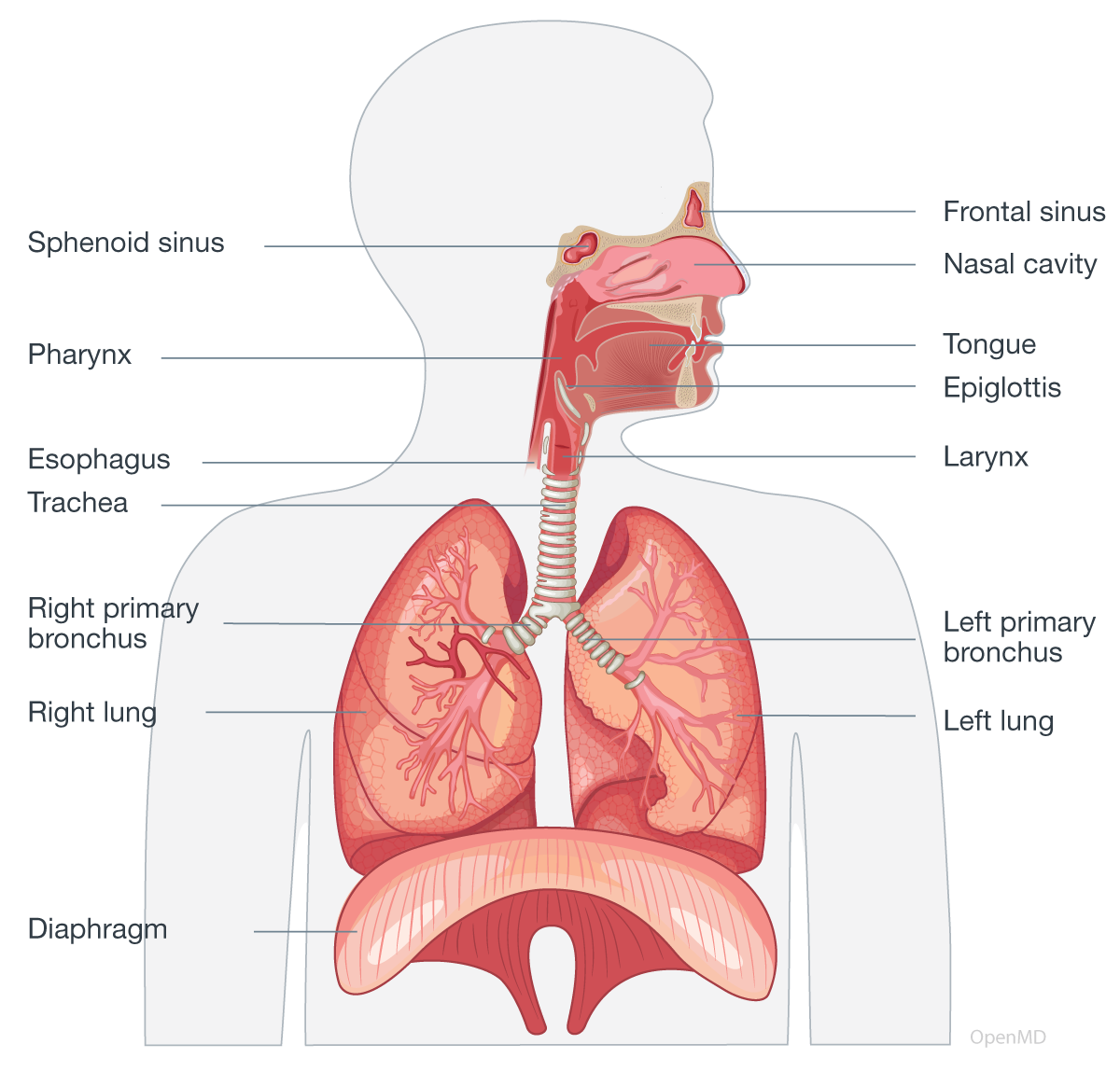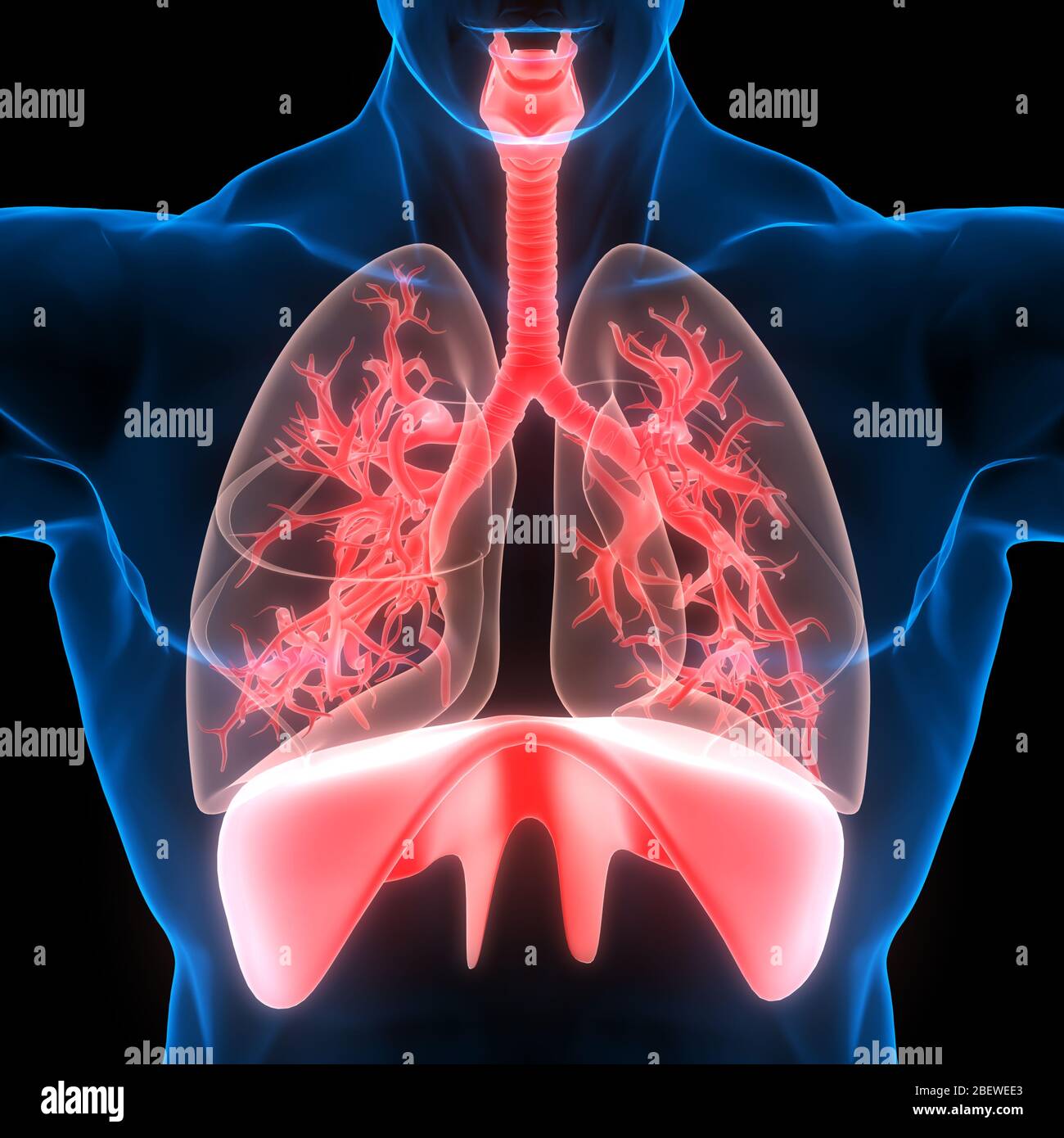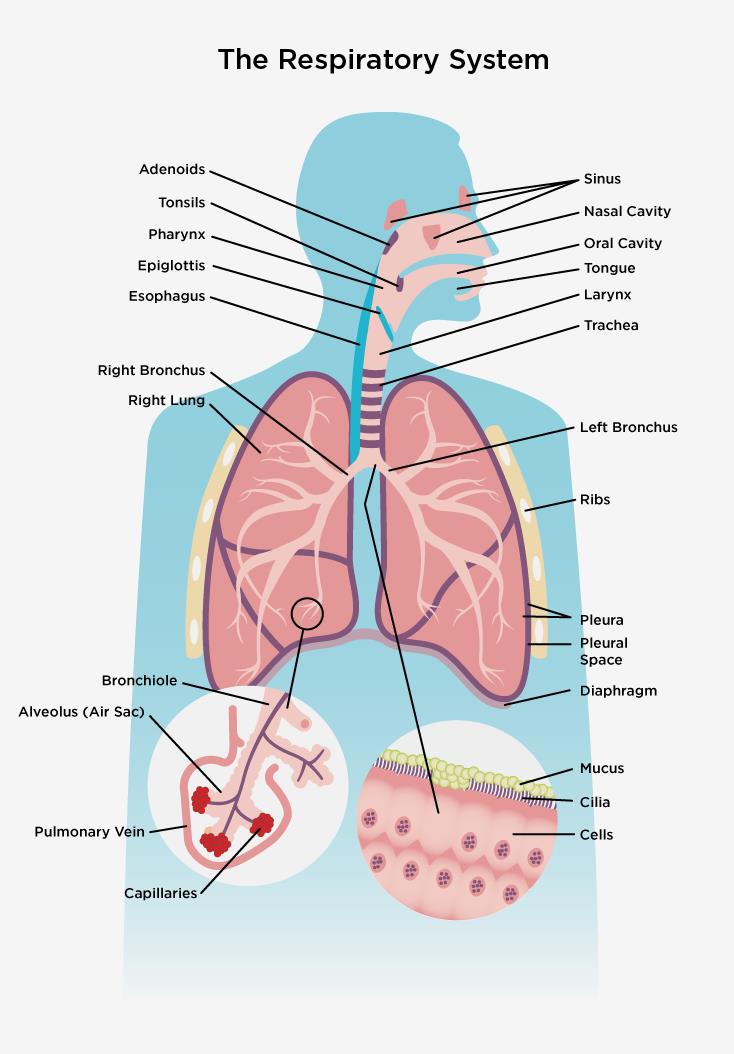Respiratory Therapy Bridge Programs - Your Next Step
Think for a moment about something we all do, every single moment, without even giving it much thought: breathing. It's a pretty basic act, yet it keeps us going, supplying every part of our bodies with the fresh air it needs. This constant air exchange, getting oxygen in and carbon dioxide out, is done by a truly amazing setup inside us. It involves more than just your lungs, you know, it's a whole connected group of parts like your windpipe, the smaller air tubes, your voice box, and even your nose and mouth, so it's a big team effort.
This air-moving system, sometimes called the pulmonary setup, works like a well-tuned machine. When you take a breath in, air travels through a network of passages, finally reaching tiny air sacs deep inside your lungs, that's where the real swap happens. Oxygen gets picked up by your blood, and carbon dioxide, a waste product, gets dropped off to be breathed out. This steady give and take is absolutely key for keeping us alive and well, so it's a really important job.
When this vital air-moving system faces trouble, whether from sickness or an injury, people need special help. That's where people who work with breathing care come in, those skilled individuals who know just how to support someone's ability to breathe freely. For those already helping others with their breathing, maybe as a certified assistant, there are ways to grow your skills and take on bigger roles. These paths often come in the form of what we call respiratory therapy bridge programs, which can really open up new doors for your future, you know.
- Tom Wopat A Multifaceted Talent In Entertainment
- Gleb On Dancing With The Stars A Journey Of Rhythm And Grace
- Exploring The Lives Of Gilbert Arenas Kids
- Unveiling The Wealth Of Yasmine Bleeth A Look At Her Net Worth
- Exploring The Life Of Brittney Griners Twin Brother
Table of Contents
- What Do People Who Help With Breathing Do?
- Why Think About Respiratory Therapy Bridge Programs?
- What Are Respiratory Therapy Bridge Programs All About?
- What Can You Gain From Respiratory Therapy Bridge Programs?
- How Do You Pick The Right Respiratory Therapy Bridge Program?
- What Are The Steps To Join Respiratory Therapy Bridge Programs?
- Are Respiratory Therapy Bridge Programs Worth The Effort?
What Do People Who Help With Breathing Do?
People who work in breathing care, often called respiratory therapists, play a big part in looking after those whose air-moving systems are not working as they should. They work with folks who have conditions like asthma, bronchitis, or even serious lung problems, giving them the support they need to breathe easier. Their work is quite varied, really, from giving medicines through special devices to helping people use machines that help them breathe, and stuff like that.
They are the ones who understand how your nose, throat, windpipe, and lungs all work together to get air in and out. They know how the tiny air sacs in your lungs let oxygen get into your blood and carbon dioxide leave. This deep knowledge allows them to spot problems and then come up with ways to help, so it's a very important role.
These care providers also teach patients and their families about their breathing conditions. They show them how to use their breathing equipment at home and how to manage their symptoms. This teaching part of their job is very helpful, honestly, as it gives people the tools to take better care of themselves, which can make a big difference in their daily lives, you know.
- Stana Katic Baby A New Chapter In The Stars Life
- Exploring The Exquisite Camaro Zl1 Interior
- Unraveling The Charismatic Journey Of Joseph Gilgun
- Discovering Camilla Araujo A Rising Star In The Spotlight
- Unveiling The Height Of Young Thug How Tall Is He Really
They often work in hospitals, clinics, or even in people's homes. Their day might involve checking on someone who just had a big operation, helping a small child with a breathing issue, or supporting an older person with a long-term lung problem. It's a field where you see a lot of different situations, and you get to help a wide range of people, which is pretty rewarding, actually.
The work they do is directly linked to keeping people alive and improving their day-to-day comfort. Without their focused care, many individuals would struggle to get enough air, making everyday tasks feel nearly impossible. Their skills are always in demand, because breathing is something everyone needs to do, after all, and sometimes it needs a little help.
Why Think About Respiratory Therapy Bridge Programs?
For those already in the breathing care field, perhaps as a certified respiratory therapist with a two-year degree, there often comes a point where you want to do more. Maybe you want to take on more complex cases, or perhaps move into a teaching role, or even step into a leadership position. This is where moving up in your schooling can be really helpful, so it's a natural next step for many.
Getting a four-year degree, like a bachelor's, can open doors that were previously closed. It shows you have a deeper understanding of the field and that you are ready for more responsibility. It's like having a stronger foundation for your future work, giving you more options, you know.
Also, the medical world is always changing, with new ways of doing things and new tools coming out all the time. A higher degree helps you stay current with these changes. It means you are better prepared for what's next in the field, and you can keep providing the best possible care, which is pretty important, honestly.
Thinking about respiratory therapy bridge programs means thinking about growing your skills and your career. It's about building on what you already know and adding new layers of knowledge. This can lead to better job opportunities and, quite often, a higher paycheck, which is a nice bonus, to be honest.
It's also about personal growth. Taking on more schooling shows a real commitment to your chosen line of work and a desire to keep learning. That kind of drive is something that can really set you apart, and it feels good to keep pushing yourself, anyway.
What Are Respiratory Therapy Bridge Programs All About?
Respiratory therapy bridge programs are specially set up schooling paths for people who already have a two-year degree in breathing care. These programs help you go from that two-year degree to a four-year bachelor's degree. They are made to recognize the learning you already have, so you don't have to start all over again, which is very convenient.
These programs often let you do much of your schoolwork online. This means you can keep working your job while you are studying. It offers a lot of freedom, allowing you to fit your learning around your life, which is a big deal for many people, you know.
The lessons in these programs build on what you already know about the breathing system. You might learn more about how diseases affect the lungs, how to do more involved tests, or how to manage a department. It's about adding more layers to your current skills, basically.
They are called "bridge" programs because they help you cross from one level of schooling to the next. They connect your past learning with your future goals. It's a way to move forward without losing the credit for all the hard work you've already put in, so that's a good thing.
These programs are typically designed to be flexible. They understand that you have a life outside of school, with work and family. This flexibility is a key part of what makes respiratory therapy bridge programs so popular, giving people a real chance to advance without completely disrupting their lives, which is pretty cool.
Who Are Respiratory Therapy Bridge Programs For?
These bridge programs are mostly for people who are already working as certified respiratory therapists and have a two-year associate's degree. Maybe you've been working for a while and feel ready for a new challenge, or perhaps you want to earn more money, you know. They are for those who want to move up in their chosen field without having to stop working completely.
They are also for individuals who might have started their schooling years ago and now want to finish up a higher degree. Life happens, and sometimes you have to pause your education. These programs offer a way to pick up where you left off and get that four-year degree, which can be very satisfying, honestly.
If you are someone who enjoys learning and wants to keep growing in your job, then these programs are probably a good fit. They are for people who see the value in deeper knowledge and who want to be able to help patients in even more ways. It’s for those who have a real passion for breathing care, you see.
Basically, if you have a two-year degree in breathing care and you're thinking about what's next for your career, then respiratory therapy bridge programs are definitely something to look into. They are a clear path forward for many, allowing them to build on their existing skills and move into more advanced roles, so it's worth considering.
What Can You Gain From Respiratory Therapy Bridge Programs?
One of the clearest gains from these programs is the chance for better job opportunities. With a four-year degree, you might be able to apply for positions that require more schooling, like working in specialized areas of a hospital or even moving into a teaching role at a college. It just opens up more doors, you know.
You also tend to see an increase in your earning potential. Generally, people with higher degrees make more money over their careers. This extra schooling can be a direct path to a better salary, which can make a big difference in your life, honestly, and that's a pretty good thing.
Beyond money and job titles, you get a deeper understanding of your field. You learn more about how the body works, how different illnesses affect breathing, and new ways to treat them. This added knowledge makes you a more skilled and confident care provider, which is very important for patient well-being, as a matter of fact.
These programs can also lead to leadership positions. With a bachelor's degree, you might be able to become a supervisor or a manager in a breathing care department. You could help shape how care is given and guide newer therapists, which is a great way to make an even bigger impact, you know.
And, of course, there's the personal satisfaction that comes from achieving a higher educational goal. It shows you can set a goal and work hard to reach it, even while balancing other parts of your life. That feeling of accomplishment is pretty powerful, and it can give you a real boost, you see.
How Do You Pick The Right Respiratory Therapy Bridge Program?
Choosing the right program is a big step, so you want to take your time with it. First, look for programs that are approved by the right groups, like the Commission on Accreditation for Respiratory Care (CoARC). This approval means the program meets certain standards for good teaching, which is very important, you know.
Next, think about how the program is set up. Do they offer classes online, in person, or a mix of both? If you are working, an online option might be best for you. Make sure the schedule fits with your current life, basically, so you can actually finish it.
Also, look at what the program teaches. Does it cover the things you are interested in learning more about? Does it offer courses that will help you reach your specific career goals? Some programs might focus more on management, while others might focus more on patient care, so you want to find one that matches what you want to do, you know.
Consider the cost of the program, too. Schooling can be expensive, so make sure you understand all the fees involved. Look into financial aid options or scholarships that might be available to help you pay for it. It's a big investment, after all, so you want to be prepared.
Finally, read reviews or talk to people who have already gone through the respiratory therapy bridge programs you are considering. Their experiences can give you a lot of helpful information and help you make a good choice. It's always good to hear from others who have been there, anyway.
What Are The Steps To Join Respiratory Therapy Bridge Programs?
Getting into one of these programs usually starts with gathering your past school records. You'll need to show proof of your two-year degree in breathing care. Most places will want to see your grades from your previous schooling, too, so it's good to have those ready.
Then, you'll fill out an application form. This form will ask for your personal details, your work history, and why you want to join the program. It's your chance to tell them a bit about yourself and your goals, you know.
Some programs might ask for letters of recommendation from people who know your work, like a boss or a former teacher. These letters help the school get a better idea of who you are and how well you perform, which can be pretty helpful, honestly.
You might also need to write a short essay or a personal statement. This is where you can really explain your reasons for wanting to continue your education and what you hope to do with a higher degree. It's a good way to show your passion for breathing care, you see.
After you've sent in all your papers, the school will look them over. They might even ask you for an interview, either in person or online. This is just a chance for them to get to know you better and answer any questions you might have. It's a pretty standard process, basically, for getting into respiratory therapy bridge programs.
Are Respiratory Therapy Bridge Programs Worth The Effort?
Thinking about the time and money you put into more schooling, it's fair to ask if it's truly worth it. For many in breathing care, the answer is a clear yes. These programs can truly change your career path for the better, giving you more options and chances to grow, so it's a real investment in yourself.
The added knowledge you gain makes you a more capable and confident professional. You can take on more challenging cases, understand more about complex health issues, and provide even better care to your patients. This feeling of being more skilled is a big reward in itself, you know.
Also, as mentioned before, there's the potential for a better salary and more interesting job titles. Moving into leadership or specialized roles can bring a lot more satisfaction to your daily work. It’s about building a career that truly fits your ambitions, which is pretty important, honestly.
The flexibility of many of these programs, especially the online ones, means you can often keep working while you learn. This makes it possible to improve your education without putting your life on hold. That kind of balance is something many people look for, and these programs often provide it, you see.
In the end, deciding to pursue respiratory therapy bridge programs is a personal choice, but for those who want to deepen their skills, open new doors, and make an even bigger difference in the lives of people who need breathing help, it's a path that offers a lot of good things. It's a way to keep growing in a field that truly matters, basically.
- Unraveling The Legacy Of Dr Yang In Greys Anatomy
- Unraveling The Mystery What Happened To Tamron Hall
- Sophie Rain The Star Of The Spiderman Video Phenomenon
- Has Mike Wolfe Passed Away
- David Draiman The Voice Of Disturbed

Introduction to Human Respiratory System

Human respiratory system hi-res stock photography and images - Alamy

Respiratory system